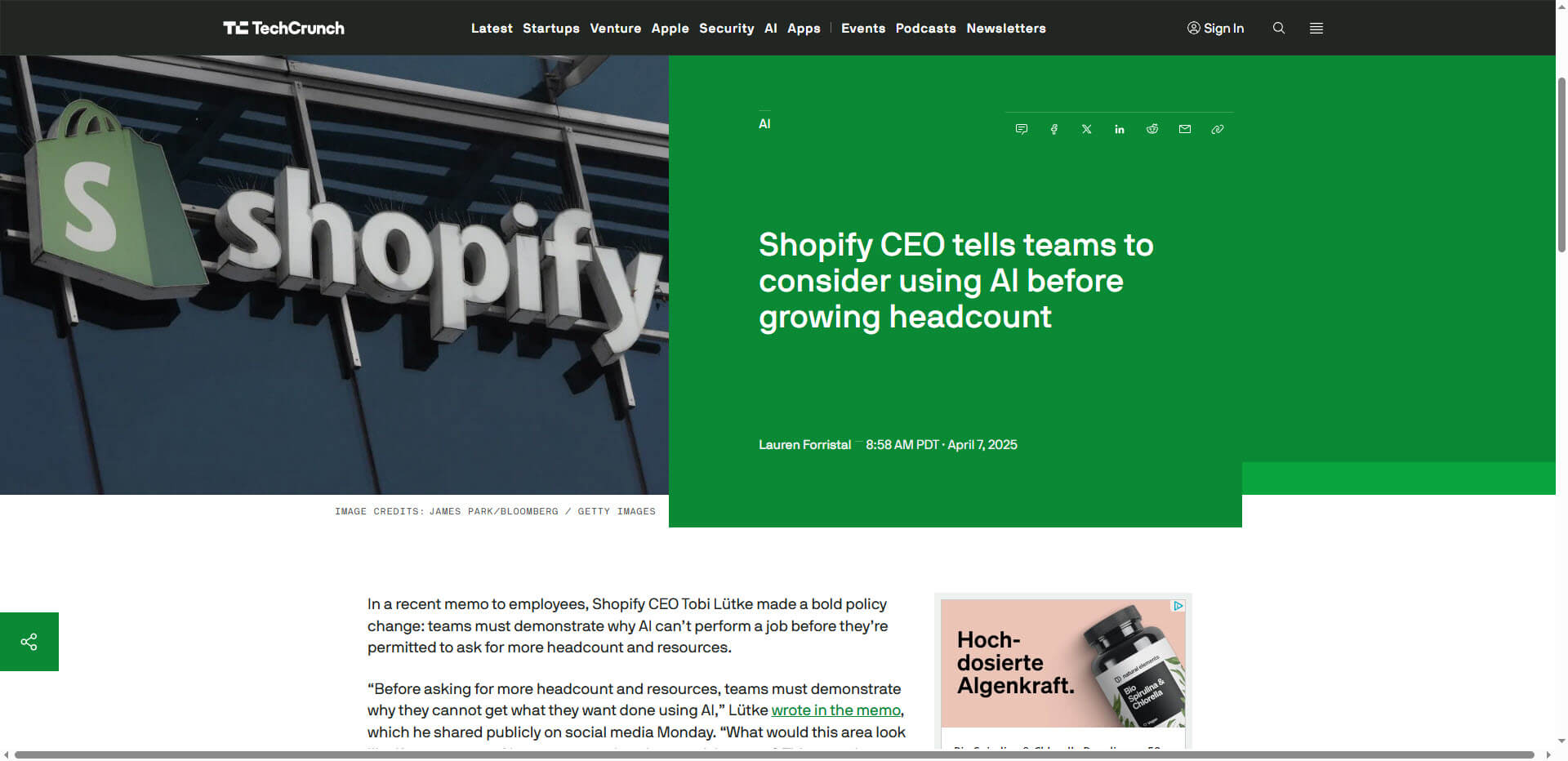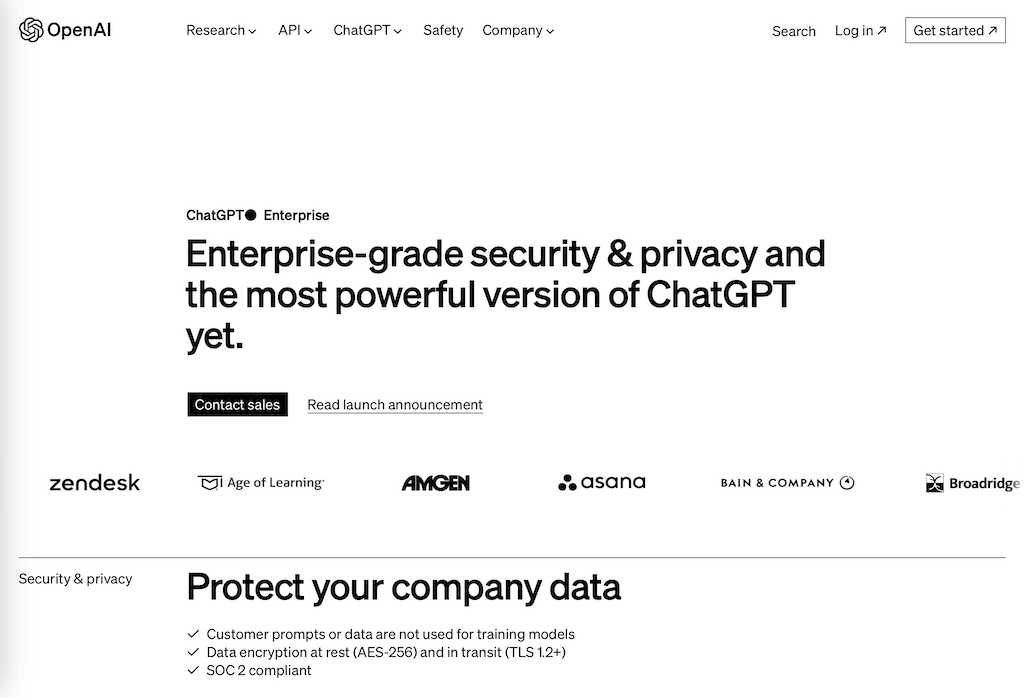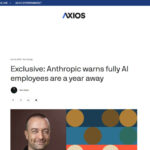In future, e-commerce giant Shopify will require its teams to prove that AI cannot complete a task before new employees can be hired.
In an internal memo entitled “AI usage is now a baseline expectation”, Shopify CEO Tobi Lütke announced a radical change in company policy. Teams must now prove that artificial intelligence cannot take over the relevant tasks before applying for new positions or additional resources. This strategic realignment follows the layoff of 20% of the workforce in 2023 and indicates a long-term commitment to leaner, AI-driven operations.
The new policy positions AI literacy as an essential skill for all employees, including senior management. Lütke emphasizes that AI is not just a tool, but a “multiplier” that can do “100 times more work” than previously thought possible. Employees now have to demonstrate in performance reviews how they use AI to increase their productivity.
AI as a replacement for human labor: an industry-wide trend
Shopify is not alone in this strategy. Swedish financial services provider Klarna claimed in 2024 that an AI chatbot had replaced 700 customer service agents, resulting in a 50 percent reduction in its workforce and annual savings of 40 million dollars. Nevertheless, Klarna continues to hire engineers, which shows that AI complements human expertise, but does not completely replace it.
A recent UN report on trade and development (UNCTAD) predicts that AI could impact around 40% of jobs globally by 2033. While advanced economies could leverage AI for productivity gains, developing countries risk losing their cost advantage in labor. The report estimates the AI market at $4.8 trillion by 2033, but warns that the benefits will remain mainly concentrated with tech giants in the US and China.
Between efficiency gains and ethical concerns
Proponents argue that AI unleashes unprecedented efficiency. Lütke cited examples of employees using AI to accomplish “unimaginable tasks”, such as optimizing supply chains or creating personalized marketing content. However, critics warn that automation could exacerbate inequality, especially in areas such as e-commerce logistics and customer support, where repetitive tasks predominate.
UNCTAD is calling on governments to prioritize “inclusive human development” through retraining programs and ethical AI frameworks. Shopify’s policy raises questions about accountability, as over-reliance on AI tools such as GitHub Copilot (used by Shopify engineers) could cause code errors or intellectual property issues.
Summary
- Shopify requires teams to prove AI can’t do tasks before hiring new employees
- AI competency is now a baseline requirement for all employees and is factored into performance reviews
- Similar strategies at other companies such as Klarna, which replaced 700 customer service points with AI
- UN forecast: AI will impact 40% of all jobs worldwide by 2033
- Expert warning: Without proactive measures, the AI revolution could increase global inequalities
Source: TechChrunch







